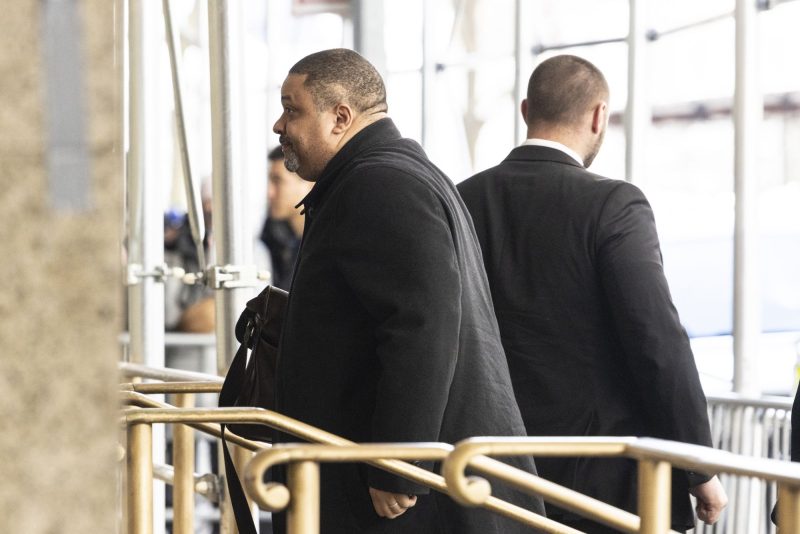An indictment of former president Donald Trump in Manhattan will apparently have to wait — if it is going to happen at all. The grand jury investigation of him is effectively on hiatus until late-April.
And even as that news was breaking came perhaps the most significant poll about the situation to date. It suggests that Americans might be okay with that delay, because they’re broadly skeptical of the case’s motivation. And they don’t view it as seriously as Trump’s other legal problems.
The Quinnipiac University poll found that 32 percent of Americans regard the allegations — that Trump falsified business records to cover up his 2016 hush-money payment to adult-film star Stormy Daniels — as “very serious.” An additional 23 percent say it’s at least “somewhat serious.”
Perhaps more notably, the pollster asked whether people thought the case was “mainly motivated by politics” or by the law. Americans said it was more about politics by a nearly 2-to-1 margin, 62 percent to 32 percent.
Fully 70 percent of independents and even 29 percent of Democrats said it was mostly about politics.
On both counts, Americans appear significantly less interested in and concerned by this case than other cases involving Trump.
While a majority regard the case as at least “somewhat serious,” the pollster in August asked the same question about Trump’s retention of classified documents after leaving the White House. In that case, 49 percent labeled it “very serious.” About the same percentage said the charges in Trump’s first impeachment — the one regarding his pressure for political dirt from Ukraine — were “very serious,” according to a Marist College poll back then.
The other finding from the new poll is perhaps the most relevant. It suggests not just that Americans don’t view the situation as being as serious, but that they might buy into Trump’s claims that it’s a result of political targeting.
Again, this is unusual.
Late in the Russia investigation, Americans said by a double-digit margin that special counsel Robert S. Mueller III’s probe was “legitimate” rather than a “bogus attempt” to undermine Trump, as Trump claimed. They said the same of the Mar-a-Lago search last year that Trump objected to, saying by a significant margin that the search was appropriate and was “part of a legal and proper investigation” rather than part of a “witch hunt” against Trump.
The alternatives in some of these polls (“bogus attempt,” “witch hunt”) were more severe-sounding than the new poll’s reference to “mainly motivated about politics.” And that could explain a bit about why fewer people subscribed to those views.
It’s certainly true that Americans broadly haven’t bought into Trump’s claims of political targeting, yet in this case they appear as though they might. Even many independents and Democrats are sympathetic to the idea that District Attorney Alvin Bragg’s investigation is mostly about politics.
That may be related to how serious they view the potential charges to be. As the grand jury probe has advanced and anticipation of a possible indictment has grown, even many critics of Trump have cautioned against these being the first criminal charges he might face.
That’s both because the case involves less serious alleged conduct — compared to trying to overturn an election or exposing sensitive documents — and because Bragg would rely on a somewhat untested legal theory if he were to try to charge Trump with a felony rather than a misdemeanor.
Polls show the hush-money case is a somewhat unusual entry in Trump’s succession of legal problems. In 2018, when the case was a focal point and former Trump lawyer Michael Cohen was pleading guilty, polls showed even most Republicans regarded Trump’s actions as at least unethical. Similarly, a recent poll showed 73 percent of Republicans said it would be a crime “to pay someone to remain silent about an issue that may affect the outcome of an election” (the survey did not mention Trump).
Those suggest people might be able to be convinced that these charges are warranted. But that doesn’t mean it’s a case they want to see brought.

